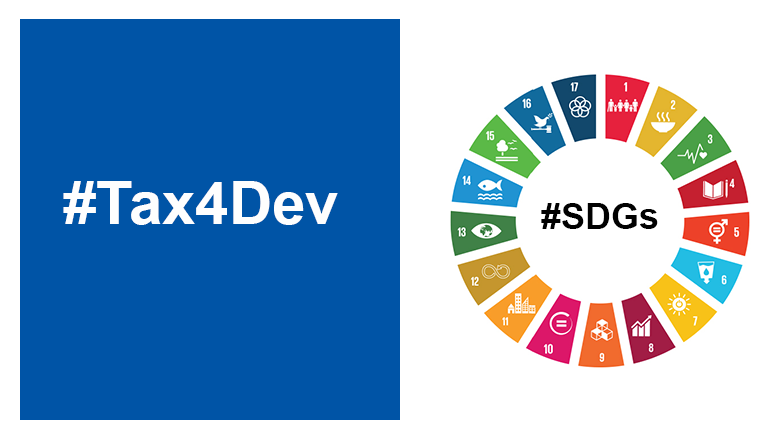
Editor’s note: The findings, interpretations and conclusions expressed herein are those of the authors and do not necessarily reflect the view of the World Bank Group, its Board of Directors or the governments they represent.
For business, the conversation around tax and sustainable development can be tough. Yet if we are to meet the Sustainable Development Goals (SDGs), reach our ambition to end poverty, reverse inequalities and curb climate change by 2030, serious action on taxation will be crucial.
That’s why it was so valuable to be a part of the First Global Conference of the Platform for Collaboration on Tax at the United Nations last month, while also supporting the agenda with concrete action and a clear message from committed business leaders: it’s time to raise the bar on responsible tax practice and recognize that business can’t thrive without functioning tax systems.
Conversations throughout the event ranged from how countries can strengthen their ability to collect taxes to innovative financing instruments and incentives that can support domestic resource mobilization while also preventing short-termism, such as taxes on short-term financial transactions and speculative capital flows. Business leaders were vocal in echoing the call for urgent action.
“The public and political environment is changing in regard to the role of taxation,” said John Connors, Group Tax Director of Vodafone, during the conference’s Opening Session, “There is a real opportunity here for business, governments and civil society to work together.” Connors’ sentiment reflected the outlook of many business leaders in attendance.
Changes in business’ attitude toward taxation was increasingly viewed as an important first step toward achieving the SDGs and restoring corporate integrity. “We wanted to build trust with corporates and within the tax system,” said Connors when asked why Vodafone decided to disclose its country-by-country tax information. And many other companies are beginning to follow suit. “What we do see are companies increasingly being responsible and accountable for their actions,” Connors added, “Businesses are recognizing that they are operating in countries where they have been ‘invited’.”
This greater sense of responsibility and accountability among companies was clear in the days ahead of the conference with the launch of The B Team’s Principles for Responsible Tax Practice, where nine leading multinationals: Allianz, BHP, A.P. Moller – Maersk, Natura Cosméticos, Repsol, Safaricom, Royal Dutch Shell Plc, Unilever and Vodafone Group Plc. collaborated with civil society to agree on ambitious commitments to guide their approach to taxation and inspire action from the larger business community.
The Principles encompass a variety of aspects of corporate tax including: how companies manage relationships with tax authorities, manage tax policy and how they pay tax and report on their contributions. They also address key issues ranging from avoiding the use of abusive structures to ensuring taxes are paid where economic activities take place, ensuring tax havens are not used to shift profits and undermine societal development.
Outside of the business sphere, the conference further laid the foundation for collaboration between business, governments and civil society: “It’s great to have a multilateral group hosting this meeting because we need multilateral solutions,” said Jeff Sachs, Director of the Center for Sustainable Development at Columbia University, during the Opening Session.
The global movement to finance the SDGs is gaining momentum as the business case becomes abundantly clear. The global cost of delivering the SDGs is estimated at between $2-3 trillion per annum, out of $115 trillion in annual global GD; while the economic prize is estimated at close to $12 Trillion per annum across 60 new markets in just 4 economic systems.
Such evidence reinforces the wisdom of a growing movement amongst companies to focus on long-term value creation. These businesses recognize the critical importance of tax; from access to educated talent, to ensuring a healthy workforce and the availability of resilient infrastructure to support the efficient flow of products and services. While the challenge ahead on tax will take time, it’s time to move from discussion to real changes in practice.
As a few companies begin the journey, it’s time for many more to follow suit and lead the way on this agenda, as we work together build an inclusive, prosperous and sustainable future.


Join the Conversation